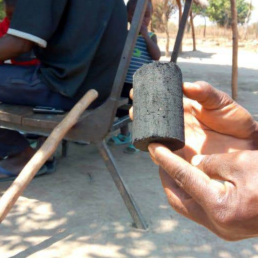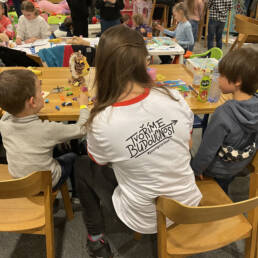Download the full report
This handbook is designed to encourage active participation at various levels of communal life.
It is neither a theological tractate nor a systematic and exhaustive reflection on the principle of participation. The objectives are rather to offer you tools and inspirations for how participation can be embedded in our daily routine. It is organised around two main parts:
The first part provides useful explanations and theoretical foundations to the phenomenon of Participation. What does participation mean? What is the scope of participation? What is distinctive in participation within Caritas? A sound theological reflection on participation is offered in what we call a ‘Participation Cycle’ – a set of steps and attitudes that embody certain principles and values, creating a way that empowers and inspires people to act from their hearts while employing their talents and capacities for the best of all.
The second part, which is at the heart of this contribution, is a collection of inspiring practices gathered from various Caritas organisations in different countries and cultural contexts. These stories and testimonies illustrate how people, just like you and us, have been actively engaged, and how they discover their capacities and opportunities through their actions. These accounts also demonstrate how they came to see a need of help, how they discerned how to get involved, how they became active in favour of the most vulnerable, and how they collaborate with partners such as local Caritas groups, parishes or youth movements. These examples might give you some ideas and inspirations, and show you how other participants from Caritas organisations have succeeded in getting involved, sometimes not without struggling.
The section that follows is designed to respond to some Frequently Asked Questions (FAQ) about participation in Caritas. Here you might find information you always wanted to know about participation, but never dared to ask. Here we include explanations of a few key terms in the domain of participation used in this handbook, which seem to be either newly introduced, uncommon, or specialised. We have also composed for you a list of a few key tips and tricks to encourage better engagement and to exercise a simple self-assessment.
This handbook has itself come into existence as a result of a participatory process. All ideas and data were collected, written and edited in close collaboration between members of Caritas Europa and, most importantly, together with people at the local level – those who have first-hand experience in assisting and accompanying people in need.
We hope this reading will inspire you to take a next step – big or small – towards a change you would like to see in this world.
It was so empowering. We love working as a team and were able to enjoy ourselves while making a difference.
Laura Campbell and Megan Jack
Pupils participating in the “Talented fundraisers” project in Scotland
More information
Miriam Pikaar
Senior Institutional Development Officer
Tel: +32 (0)2 235 03 99
Mob: +32 (0)478 58 54 36
mpikaar@caritas.eu




